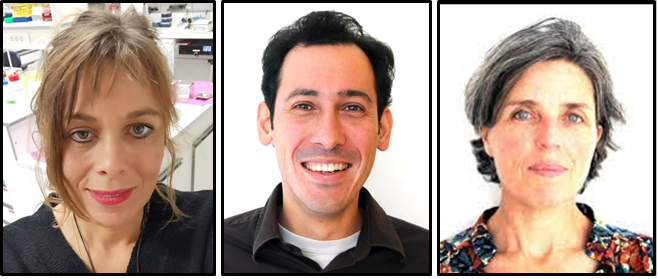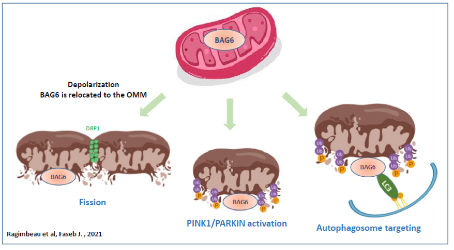Tumor microenvironnement and resistance to treatment
Campus Val d’Aurelle208 avenue des Apothicaires - Montpellier
Site web - sophie.pattingre@inserm.fr - 0467618577
Principal investigator
Sophie Pattingre

Research themes
Our team is interested in the role of the microenvironment in the tumor aggressiveness and response to anti-cancer treatments. They are many actors in the tumor stroma including cancer-associated fibroblasts, endothelial and immune cells. Characterization of immune cells (immunoscore) is now used for prognosis or prediction of response to therapy while the targeting of endothelial cells with anti-VEGF is commonly used in the clinic. However, it remains a neglected element in cancer research since within the tumor, nerves are intimately linked to the cancer cells. The interaction between tumor cells and neurons is a sign of tumor aggressiveness and resistance to chemotherapy or radiotherapy. Their presence within the tumor is a diagnostic element used routinely by pathologists. Thanks to a close collaboration with the Pathology Department of the Cancer Institute of Montpellier (ICM), we are studying the role of autophagy in the interaction between cancer cells and neurons in order to understand the mechanics of this interaction and its role in the response to radiotherapy in colorectal cancer.
In parallel to these translational studies, we are studying the mechanism of mitophagy regulation in cancer cells. We have shown that the co-chaperone BAG6 is essential for mitophagy. We determined the mechanism and showed that (1) BAG6 induces mitochondrial fission, a prerequisite for mitophagy, (2) BAG6 stimulates the PINK1/PARKIN pathway and finally (3) via an LIR domain, the interaction between BAG6 and LC3 is essential for mitophagy, suggesting that BAG6 is a novel receptor for selective autophagy (Ragimbeau et, 2021).
Descriptive figure

Publications
BAG6 promotes PINK1 signaling pathway and is essential for mitophagy. Ragimbeau R, El Kebriti L, Sebti S, Fourgous E, Boulahtouf A, Arena G, Espert L, Turtoi A, Gongora C, Houédé N, Pattingre S. FASEB J. 2021.
Metastatic colorectal cancer cells maintain the TGFβ program and use TGFBI to fuel angiogenesis. Chiavarina B, Costanza B, Ronca R, Blomme A, Rezzola S, Chiodelli P, Giguelay A, Belthier G, Doumont G, Van Simaeys G, Lacroix S, Yokobori T, Erkhem-Ochir B, Balaguer P, Cavailles V, Fabbrizio E, Di Valentin E, Gofflot S, Detry O, Jerusalem G, Goldman S, Delvenne P, Bellahcène A, Pannequin J, Castronovo V, Turtoi A. Theranostics. 2021. 11:1626-1640.
Paracrine interactions of cancer-associated fibroblasts, macrophages and endothelial cells: tumor allies and foes. Ronca R, Van Ginderachter JA, Turtoi A. Curr Opin Oncol. 2018. 30:45-53.
Murine stroma adopts a human-like metabolic phenotype in the PDX model of colorectal cancer and liver metastases. Blomme A, Van Simaeys G, Doumont G, Costanza B, Bellier J, Otaka Y, Sherer F, Lovinfosse P, Boutry S, Palacios AP, De Pauw E, Hirano T, Yokobori T, Hustinx R, Bellahcène A, Delvenne P, Detry O, Goldman S, Nishiyama M, Castronovo V, Turtoi A.Oncogene. 2018. 37:1237-1250.
BAG6/BAT3 modulates autophagy by affecting EP300/p300 intracellular localization. Sebti S, Prébois C, Pérez-Gracia E, Bauvy C, Desmots F, Pirot N, Gongora C, Bach AS, Hubberstey AV, Palissot V, Berchem G, Codogno P, Linares LK, Liaudet-Coopman E, Pattingre S. Autophagy. 2014. 1341-2.
BAT3 modulates p300-dependent acetylation of p53 and autophagy-related protein 7 (ATG7) during autophagy. Sebti S, Prébois C, Pérez-Gracia E, Bauvy C, Desmots F, Pirot N, Gongora C, Bach AS, Hubberstey AV, Palissot V, Berchem G, Codogno P, Linares LK, Liaudet-Coopman E, Pattingre S. Proc Natl Acad Sci U S A. 2014. 111:4115-20.
Composition de l'équipe
Sophie Pattingre (CRCN, INSERM, Responsable du projet Autophagie)
Ikrame Dadi (PhD student)
Marie-Alix Poul (PU, Université de Montpellier 2)
Didier Pourquier (Pathologiste, ICM, Montpellier)
Régis Souche (PHU, CHU Montpellier)
Andrei Turtoi (CRCN, INSERM, Chef d’équipe)